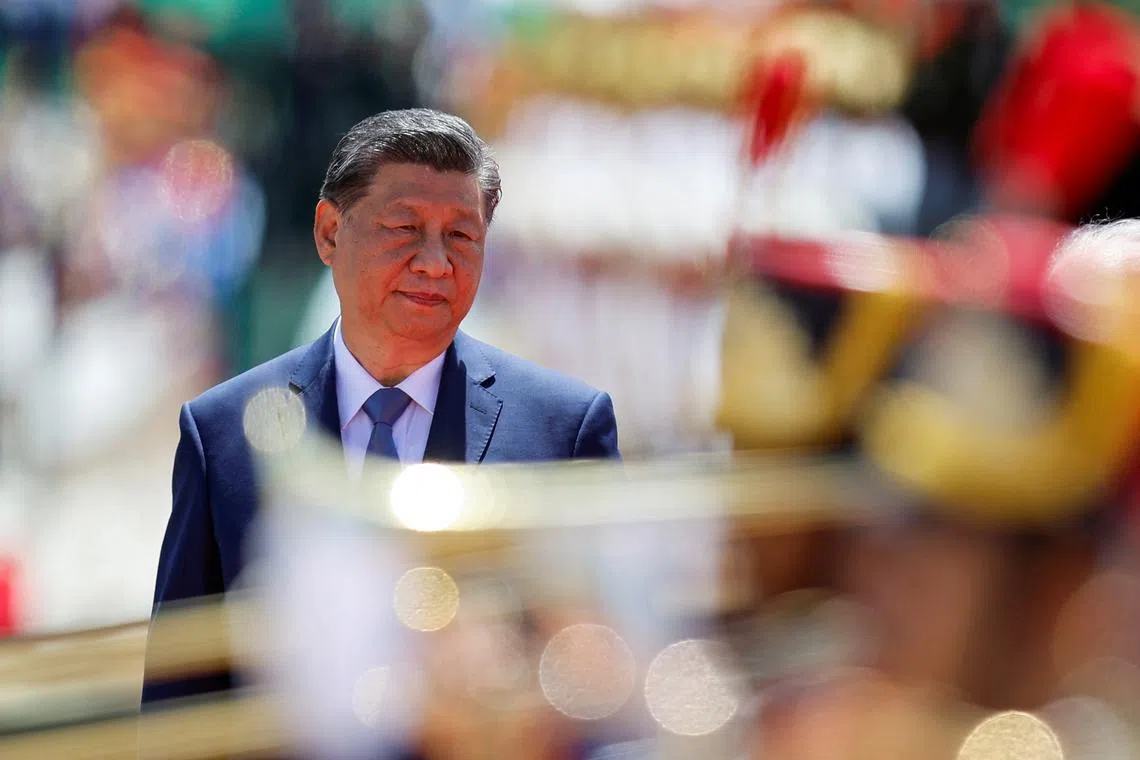Xi Jinping to send top-level envoy to Trump’s inauguration: Report
Sign up now: Get insights on Asia's fast-moving developments

Mr Xi Jinping could send Mr Han Zheng, a vice-president, while another option is Foreign Minister Wang Yi, the report said.
PHOTO: REUTERS
WASHINGTON – Chinese President Xi Jinping will send a high-level envoy in his place to US President-elect Donald Trump’s Jan 20 inauguration, the Financial Times reported on Jan 9.
Beijing has told Trump’s transition team that the official would attend instead of Mr Xi, whom Trump had invited,
Mr Xi could send Mr Han Zheng, a vice-president who sometimes stands in for him in ceremonial roles, while another option is Foreign Minister Wang Yi, the Financial Times reported, citing its sources.
The paper cited one person as saying that some Trump advisers wanted Mr Cai Qi, a member of the Politburo Standing Committee seen as wielding much more power than Mr Han or Mr Wang in his capacity as Mr Xi’s right-hand man.
Trump extended the invitation to Mr Xi in December 2024, but experts said then that it would be unprecedented for a leader of China, the top US geopolitical rival, to attend a US presidential inauguration and called it political theatre.
Trump said on Jan 6 that he and Mr Xi had been speaking through representatives and that he believes the two will get along in his second term.
Even so, Trump has named numerous China hawks to key posts in his incoming administration, including Senator Marco Rubio as secretary of state, signalling his China policy could be more confrontational than during his first term.
Trump has also said he will impose an additional 10 per cent tariff on Chinese goods unless Beijing does more to stop trafficking of highly addictive narcotic fentanyl. He threatened tariffs in excess of 60 per cent on Chinese goods while on the campaign trail.
China’s Foreign Ministry said on Jan 7 that Beijing attached “great importance” to Trump’s remarks this week and that it is willing to promote “stable, healthy and sustainable development of Sino-US economic and trade” issues. REUTERS


